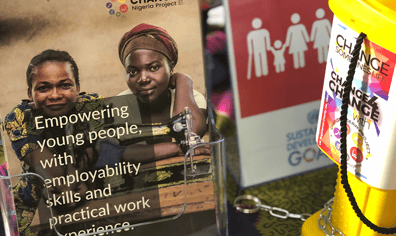About us
Who we are
In June 2018, Nigeria became the 'Poverty Capital' of the world overtaking India, with more than half of her 190 million population living on less than $1.90 a day.
Nigeria's youth population has been worse affected with over 60% of its young labour force, are classified as unemployed, with this figure set to rise year-on-year with the addition of new graduates. Making this group;
- vulnerable to people traffickers leading to modern-day slavery and forced prostitution;
- codeine addiction;
- susceptible to recruiters of domestic terrorism; and
- being forced into underemployment.
Despite Nigeria being the largest oil producer in Africa, her government has struggled to create jobs and elevate its people out of poverty and are now focusing on entrepreneurial strategies and low-cost loans for small businesses to reduce this figure.
Businesses are fundamental for job creation and economic growth, and this is where we come in as we believe the key to fulfilling Sustainable Development Goals 8 ('SDG8'); Decent Work and Economic Growth; lies with the coordination and cooperation of the business community.
At the Change Nigeria Project, we work with businesses in Nigeria to create apprenticeship opportunities for unemployed young people in Nigeria. We believe encouraging the apprenticeship culture within business will;
- reduce the high number of young people not in education, employment or training (SDG 8.6 and 8.6.1);
- address the skills shortage gap (SDG 8.6 and 8.6.1), and moreover
- invest in the future generation. (SDG 8.7).
Our holistic approach addresses career readiness by providing young people with advice, CV clinics, mock interviews and free online resources; easing the transitions between inadequate education and long-term unemployment, and the professional world.
Our approach recognises that young people need early and engaging experiences with the world of work to adequately prepare them with the 21st-century workplace skills required by employers. We motivate, empower and give young people the tools to transition into the workplace successfully.
Our figures speak for itself; with 63% retained by the employer, 24% returning to education and 13% successfully finding employment as a result of their placement.




